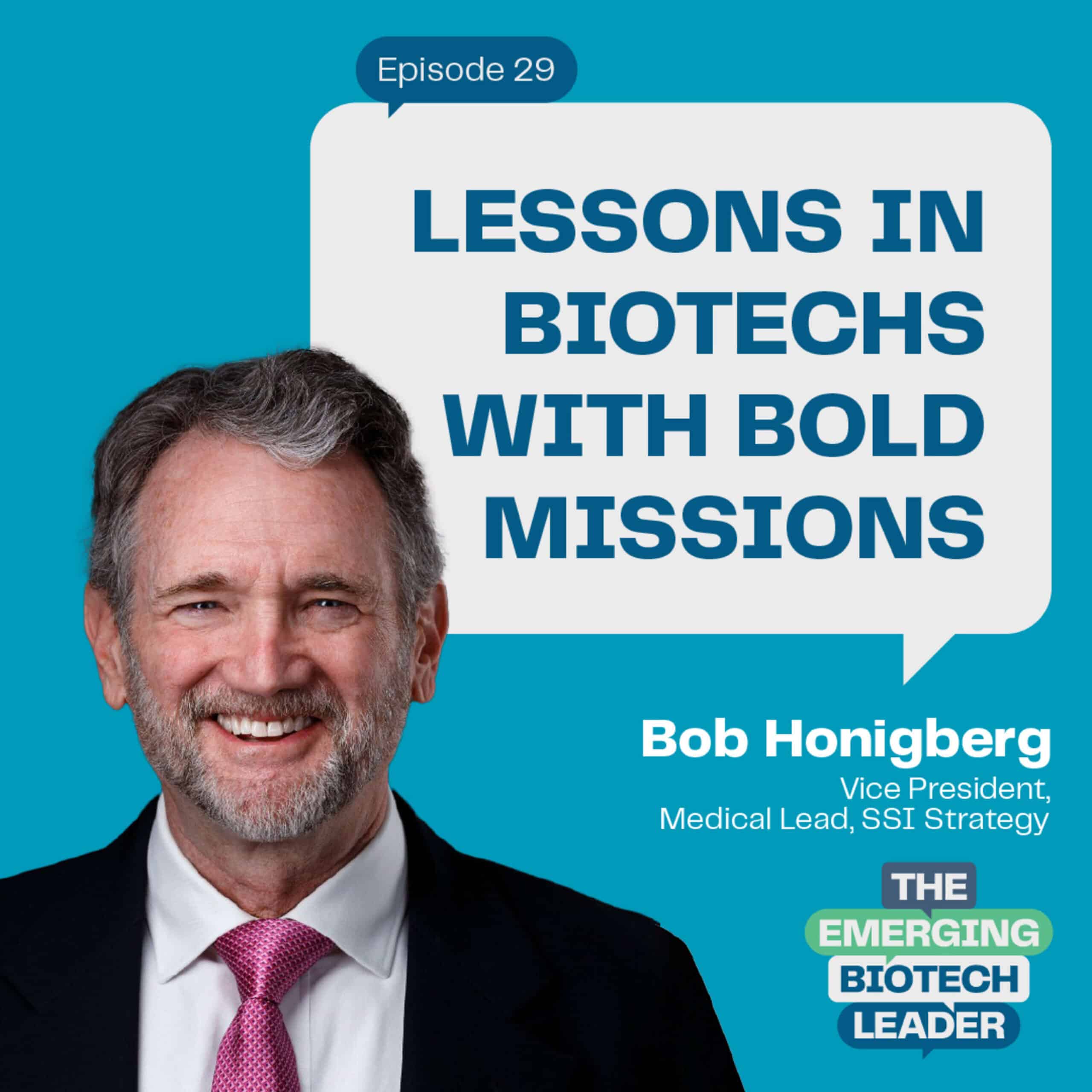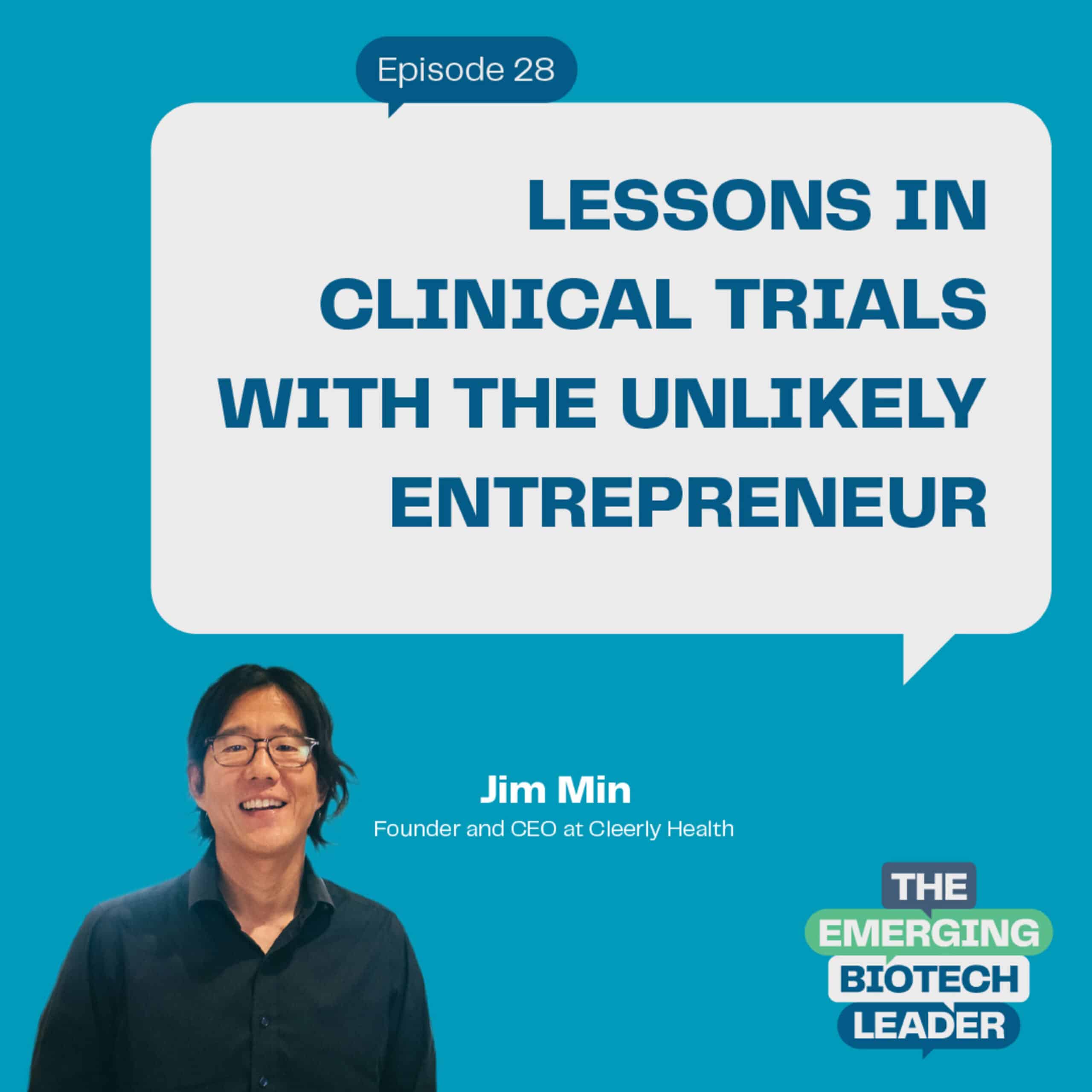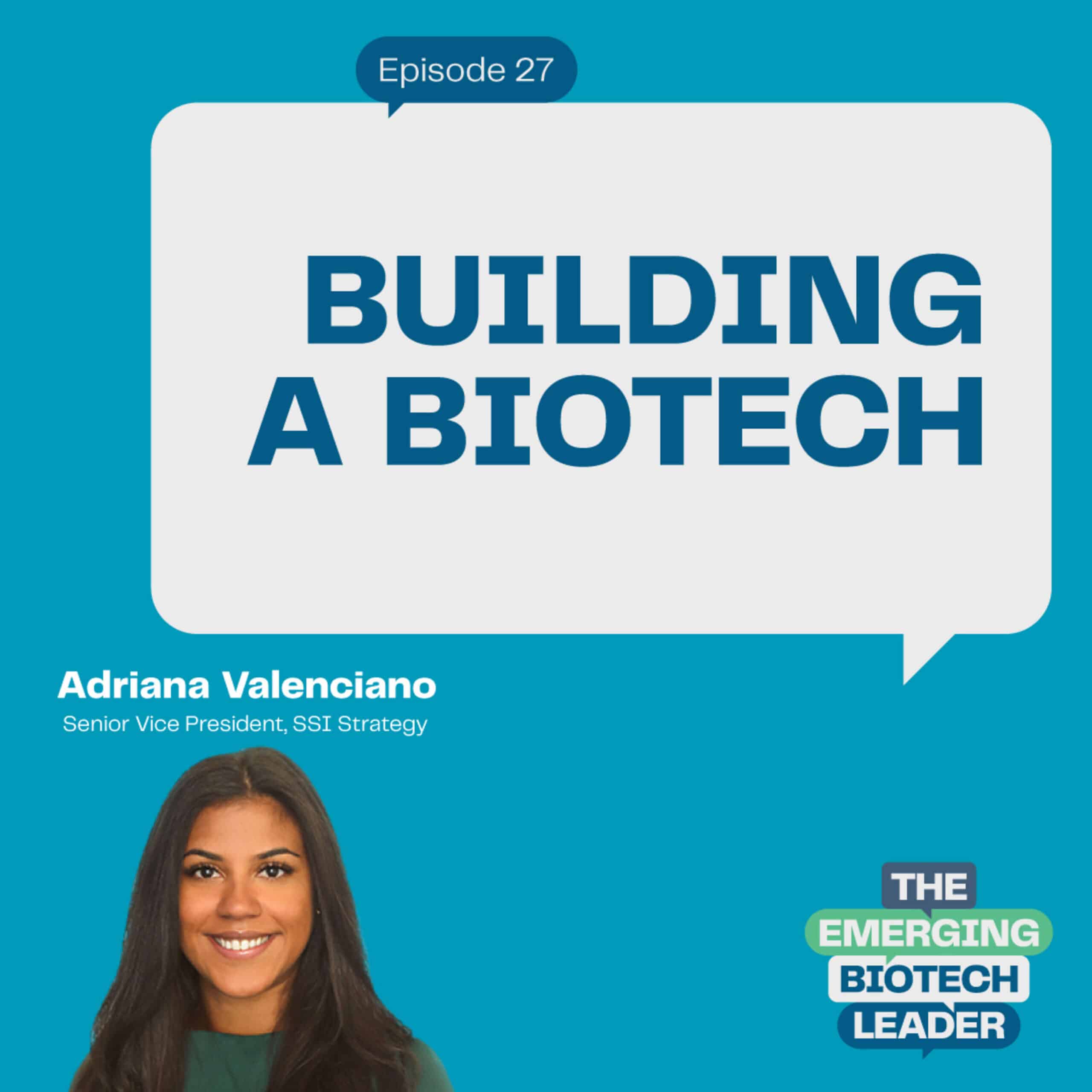
“I will always have deep empathy for patients and want to do the best that I can, but I feel very satisfied that I’m driving development of OHB 607, which has the potential to change the trajectory. So, I don’t have to sit and remind myself why I’m doing that–there are patients on the other end.” Victoria Niklas
How can you break into biotech from academia without guilt, fear, or self-doubt? After listening to our guest, Victoria Niklas, in Episode 23 of the Emerging Biotech Leader, you may just have the answer to that question. Victoria is the Chief Medical Officer at Oak Hill Bio. As you’ll soon learn, she has been in pharma and biotech just shy of 10 years–7 to be exact. Prior to this time, Victoria was an academic neonatologist and translational scientist beginning at UCLA, rising through the ranks at the University of Virginia in Charlottesville, Children’s Hospital of Los Angeles, and finally returning to UCLA before taking her first industry role with Prolacta Bioscience as their first Chief Medical and Scientific Officer.
In addition to our new guest and a new topic–we have a new guest host: SSI President Adam Schwartz, who is joined by Ramin.
True to form, both get Victoria to open up and share more on the uncertainty and upside in pursuing a new path, especially in making the transition from academia to pharma to biotech.
As a preview of what’s to come, Victoria shares more on:
- The skills she leveraged to make this career jump
- How to keep an open mind and disregard stigmas about one sector vs. the other
- Her experience in establishing a licensing agreement, along with the regulatory components of that
- The role of the CMO
- Embracing lifelong learning
No matter your career crossroads–big Pharma to biotech, academia to biotech, bedside medicine to biotech, we know you’ll find this interview invaluable.
From One Sector To The Other – In Pursuit of Impact
While it’s still evolving some seven years in, Victoria’s pharma career includes a background in research spanning various roles, including time at Takeda. “My experience in research helped me develop a strong foundation and understanding of the scientific and medical aspects of drug development, which has been invaluable in my current role at Oak Hill Bio.”
Her first stepping stone into this world from academia came by way of a professional connection–just as she felt a nudge to pursue a new path. “I began to feel as if I wanted a bigger stage with which to have an impact, you know, particularly in the care of extremely premature newborns where drug development in that area doesn’t rival that of other areas. In thinking about how to do that, I was very fortunate. I was approached by the CEO at Prolacta Bioscience, who said, ‘You know, we’d love to have you come and join us as our first chief medical and scientific officer.’ So I took that opportunity and never looked back.”
From Prolacta, she was then recruited to go work at Takeda to lead a drug pipeline focused on extremely premature newborns. Then, the work at Takeda led to Oak Hill Bio–a byproduct of them choosing to out-license that program. This next role, however, did require a different approach–she didn’t just apply and interview. Listen for specifics on how this all came together during the podcast.
On The Transferable Skills Required To Make A Move
As we’ve discussed in previous episodes of The Emerging Biotech Leader, transferable skills go a long way when making a career pivot.
Chris Morabito covers this topic in Episode 15 of The Emerging Biotech Leader.
The key skills that helped Victoria transition from academia to biotech included multitasking, leadership, and guarded optimism. Most likely a new term for you, here’s how she defined that for Adam and Ramin: “So I think it’s being optimistic, but, you know, not necessarily guarded–but just realistically optimistic, always.”
A final transferable skill she mentioned is thriving and surviving on very little sleep. We hope you appreciate her honesty there.
On Disregarding Stigmas and Preconceived Notions
Adam was curious to uncover how Victoria overcame questions and skepticism about her new pursuits.
“Victoria, you mentioned some of your colleagues in academia sort of “warning you” as you were thinking about taking that step into pharma. And it’s obviously something that many medical professionals and scientists go through when they’re in academia, and then they’re thinking about whether or not it’s a good step for them. What are some of the things that colleagues of yours were warning you about? And were they true?”
Victoria did shed light on the misconceptions about “selling out” or abandoning patients, emphasizing how many in her same shoes venture into the industry driven by a genuine desire to make a difference and keep the patient at the heart of drug development. She covers more specifics of the “sell out” and skepticism on her motives and commitment–be sure to listen for those details.
As a solution to break this stigma down, Victoria highlights the importance of increasing education and understanding within the medical community–to bridge the gap between academia and pharma.
For those currently in medical school, contemplating which path to take, or even making the leap from another sector to biotech, Victoria shares more about why this should change, even starting at the academic level.
“There’s no class in medical school where you go to learn the pharmaceutical drug development process. So, it is a gap. But appreciation for what the pharmaceutical industry and biotech are doing to expand drug development, I think that sentiment people completely understand and get. So much of it, I think, is just not being aware of the nuances of it. Number one. Number two the expense of it. And number three, how long it takes, especially to have a robust process to prove efficacy with an appropriate safety profile.”
On Managing Out Licensing–What Was Required To Make This Happen?
If you’re a loyal listener of this show, you know that Ramin has a remarkable way of asking questions that provide teachable moments for the biotech community. This was the basis for his inquiry around the licensing agreement between Takeda and Oak Hill–and how Victoria played a part in moving that forward.
“What was your negotiating strategy? What regulatory aspects did you have to consider in that whole process? Basically, how did you make that happen?”
We won’t make you wait to get Victoria’s answer. Here’s what she said.
“One was shoring up the team because I think given the nature of the population and the incredible connections that people on our team at Takeda had developed, you know, we had to take the view that it’s not over. Ok? This doesn’t mean these patients will never receive this drug in the longer term. So, shoring everybody up and keeping people laser-focused on that.
“And the second thing was helping develop the message. From Takeda’s perspective, I was sitting there as the representative, as the one who was going to develop interest among the external parties. So, how do you message that? That was a process with lots and lots of hours on Zoom calls.
“All of the out-licensing was done in a separate group at Takeda and so the next time I picked it back up was when I was now sitting in the Oak Hill Bio seat. I didn’t have a lot of input into the out-licensing other than to say, ‘Here’s why this is absolutely critical to continue development. Here’s what you need to understand about these incredibly fragile newborns and why this drug is going to be transformational.’”
Adam wanted to hear more about her specific pivot story from big pharma to biotech–while working on the same program. Tune in to hear Victoria’s perspective on what that’s been like.
On The Role of The CMO At A Biotech
As the conversation switched gears, the role of the CMO started to emerge as the next talking point. Because it’s multifaceted, Victoria emphasized the importance of CMOs learning quickly, seeking mentorship, and being adaptable to change.
She also provided invaluable advice to aspiring CMOs on learning from mistakes and continually honing their communication skills to meet the expectations of diverse stakeholders. One way she learned how to fulfill this quickly was through mimicry, observation, and being receptive to radical candor.
“I watch CMOs at some of these investor conferences and look to see, what is their body language? How are they phrasing things? What are they doing? Grabbing conversations when I can. I have some close colleagues that have been very successful in drug development and just try to extract nuggets of what they’ve done and how they behave and how they prioritize. But everything in the end has to fit with who I am. There’s no book, but there are resources–you can speak to somebody who does pitches and they can listen to you pitch and tell you everything you do wrong. You might take that and actually consider that success, right? Why? Because if they tell you you’re doing everything right, then there’s something wrong with that consultant–then you haven’t found the right expert yet.”
On Embracing Lifelong Learning Regardless of Career Transitions
While Victoria’s “hands-on-learning approach” has proven successful, she strongly encouraged other aspiring CMOs to share in her passion for lifelong learning. It’s a necessity to stay at the forefront of new opportunities in any career, particularly in the biotech industry.
When Ramin and Adam asked about mentorship, sponsorship, and what else played a part in her newfound confidence and title, Victoria answered that it helps to reflect on your motivations and be willing to adapt and learn–each day presents something new.
She also highlighted the importance of evaluating the risks presented by a potential career transition and being honest with oneself throughout the process. Here’s her final answer for evaluating whether to stay with what’s familiar or to go into the unknown.
“You know, opportunity… opportunity is risk. And if that is not a good balance for you, you’re going to know it very quickly. If opportunity is driving the energy that you have to do it even more, then you know that it’s definitely a path to go with.”
Subscribe for more episodes, and as always, we’ll be back again soon!


